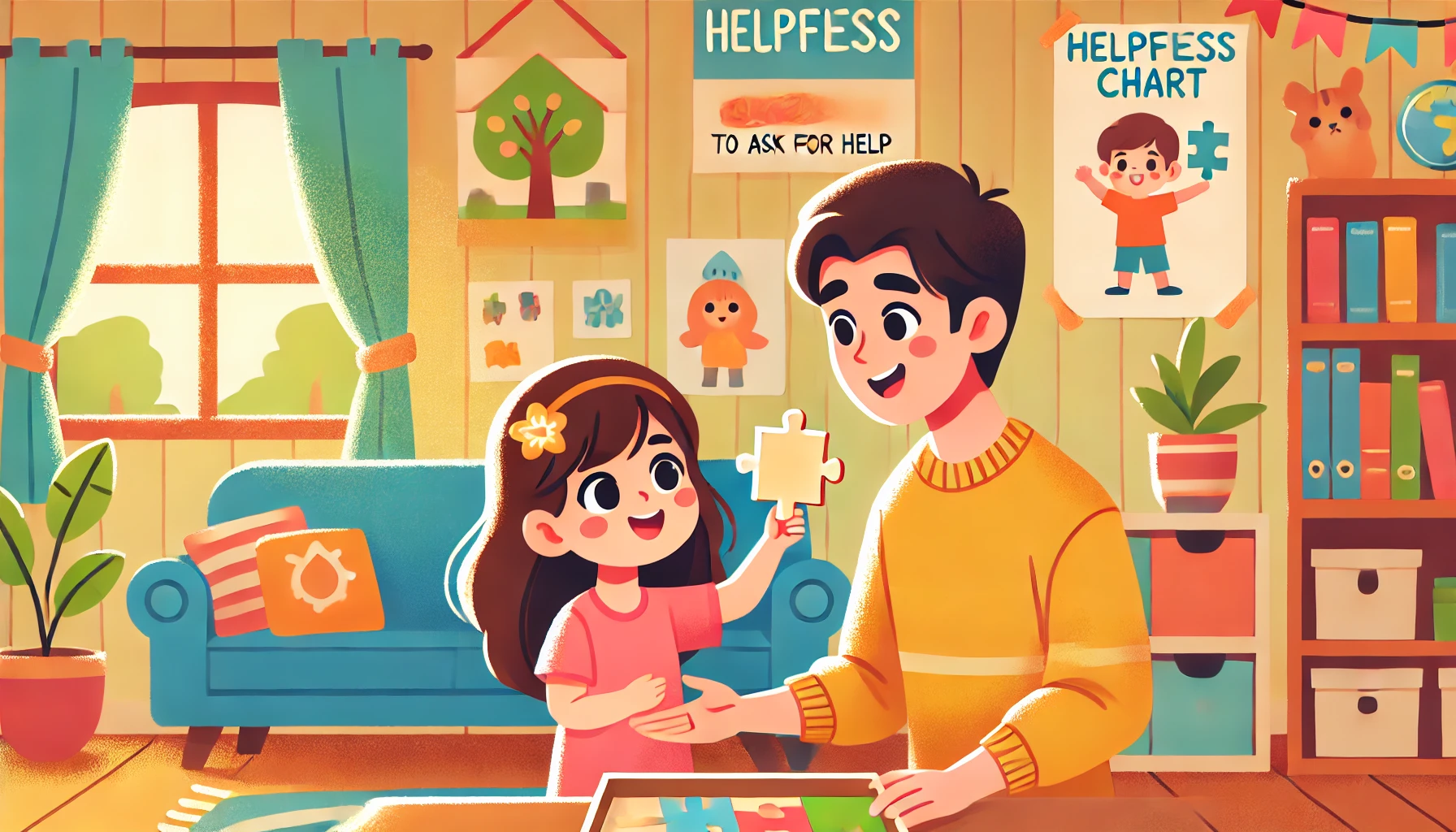How to Teach Young Children About the Importance of Asking for Help
Learning to ask for help is an essential skill for young children. It teaches them that it’s okay not to have all the answers and that seeking support is a smart, brave, and healthy choice. When children understand that asking for help strengthens their learning and relationships, they grow more confident and resilient.
Why Asking for Help Matters
- Builds confidence and trust in others
- Promotes emotional well-being and reduces frustration
- Teaches healthy communication skills
- Encourages problem-solving through collaboration
- Helps children recognize their own needs
1. Explain That Asking for Help Is a Strength
Frame it positively from the start.
Activity Idea:
- Say: “Asking for help means you’re smart enough to know when you need it!”
- Use role models: “Even teachers and parents ask for help.”
- Share your own experiences: “I asked for help when I needed to fix the car.”
What Kids Learn:
- Asking for help is normal and good.
- Even grown-ups need help sometimes.
- Courage to speak up.
2. Teach Simple, Clear Phrases
Give children the words they need.
Activity Idea:
- Practice phrases like: “Can you help me, please?” or “I don’t understand.”
- Role-play scenarios: “What could you say if you can’t reach your toy?”
- Use puppets to model asking for help.
What Kids Learn:
- Communication tools for real-life situations.
- Comfort in expressing needs.
- Language skills for seeking assistance.
3. Celebrate When They Ask for Help
Reinforce the behavior.
Activity Idea:
- Praise: “I’m proud of you for asking for help with your puzzle!”
- Reflect: “How did it feel to get help when you needed it?”
- Keep a “Helpfulness Chart” to celebrate both asking and giving help.
What Kids Learn:
- Positive association with asking for help.
- Encouragement to continue seeking support.
- Self-awareness and pride.
4. Read Books About Asking for Help
Stories make the lesson relatable.
Activity Idea:
- Read books like Can I Play Too? by Mo Willems or Bear Feels Sick by Karma Wilson.
- Discuss: “What did the characters do when they needed help?”
- Create your own story about a character asking for help.
What Kids Learn:
- Emotional connection to the theme.
- Real-life examples through storytelling.
- Comfort with vulnerability.
5. Model Asking for Help Yourself
Children learn from your example.
Activity Idea:
- Say aloud: “Can you help me set the table?” or “I need help finding my keys.”
- Show appreciation for help received: “Thank you! That made my day easier.”
- Let children see adults working together.
What Kids Learn:
- That asking for help is normal.
- How to respond with kindness when someone helps.
- Teamwork and collaboration.
6. Role-Play Problem Situations
Practice builds confidence.
Activity Idea:
- Pretend play: “What if you can’t open a jar? What would you say?”
- Use toys or drawings to act out asking for help.
- Praise creative solutions.
What Kids Learn:
- Problem-solving through communication.
- How to stay calm in tricky situations.
- Practical life skills.
7. Discuss Feelings About Asking for Help
Talk about any hesitation.
Activity Idea:
- Ask: “How do you feel when you need help?”
- Reassure: “It’s okay to feel shy, but asking makes things easier.”
- Use drawings to express feelings about asking for help.
What Kids Learn:
- Emotional literacy.
- Validation of their feelings.
- Confidence in overcoming hesitation.
8. Teach That Helping Others Is a Two-Way Street
Encourage both asking for and giving help.
Activity Idea:
- Highlight: “You helped your friend clean up—what a great helper!”
- Reflect: “We all need help sometimes, and we all can give help too.”
- Create a “Helper of the Day” tradition.
What Kids Learn:
- Empathy for others.
- Joy in giving and receiving help.
- Community spirit.
Final Thoughts
Teaching young children to ask for help is a gift that supports their growth, learning, and emotional health. With simple language, playful practice, and positive reinforcement, kids learn that seeking support is brave and wise. As they grow, this skill empowers them to face challenges with confidence, knowing they are never alone.
